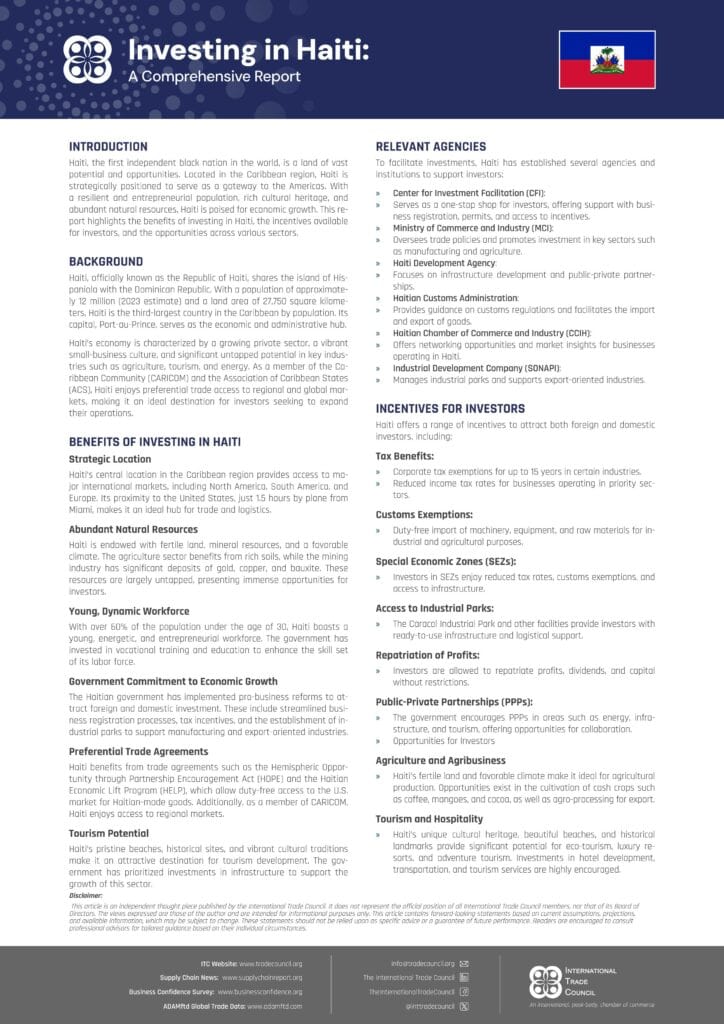- Type of Government: Semi-presidential republic
- Population: Approximately 11.5 million
- GDP: Around $14 billion USD
- Corporate Tax Rate: 30%
- Personal Income Tax Rate: 10% to 30%
- Major Exports: Apparel, essential oils, cocoa, mangoes
- Major Imports: Food, manufactured goods, machinery, fuel
Doing Business with Haiti
A comprehensive guide to doing business, exporting, investing, and manufacturing in Haiti.
Exporting to Haiti involves several key steps. Here’s a comprehensive guide:
-
Research Market Requirements
- Understand Haiti’s import regulations and standards for your product.
-
Identify Local Partners
- Establish relationships with local distributors or agents in Haiti.
-
Prepare Export Documentation
- Include commercial invoices, packing lists, and certificates of origin.
-
Logistics and Shipping
- Choose a reliable shipping company experienced with Caribbean routes. Pay necessary duties and taxes.
Key Contacts
- Haitian Customs Administration: Customs Website
Importing goods into Haiti requires compliance with specific customs and safety standards.
-
Verify Import Regulations
- Ensure your goods comply with Haiti’s import regulations.
-
Classify Your Goods
- Determine the correct tariff classification using the Harmonized System (HS) codes.
Incorporating a company in Haiti involves legal registration through the MCI and DGI.
-
Choose a Company Type
- Decide between Société Anonyme (SA) or Société à Responsabilité Limitée (SARL).
-
Notarization and Registration
- Have documents notarized and submit them to the Ministry of Commerce and Industry.
-
Tax Identification
- Obtain a fiscal identification number from the Direction Générale des Impôts (DGI).
Key Contacts
- Ministry of Commerce and Industry: MCI Website
Protecting your intellectual property is managed by the MCI:
-
Trademark Search
- Ensure your trademark is unique and not already registered via MCI databases.
-
Application and Publication
- File application with MCI. If approved, it is published in the official gazette, “Le Moniteur.”
Disputes can be settled through Negotiation, Mediation, or formal litigation:
-
Alternative Dispute Resolution (ADR)
- Mediation and Arbitration are often faster and more private than court proceedings.
-
Litigation
- File a lawsuit in the appropriate commercial court if ADR fails.
Key Contacts
- Ministry of Justice and Public Security: Justice Website
Our Members Include Leading Organizations in Haiti
Ask our Experts on Doing Business in/with Haiti
If you’re looking to do business or invest in Haiti, we can provide expert guidance, market insights, and valuable connections to help you navigate the local landscape. Contact us today to discover how we can assist in making your venture a success.





